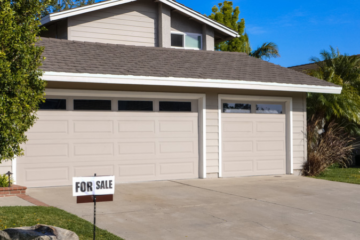When putting a home on the market, it’s important to consider three factors that determine the best time to sell:
- The most favorable times of the year in which to sell
- The state of the real estate market in your area
- Timing the sale of your current home with the purchase of your next home
Table of Contents
The Most Favorable Times in Which to Sell
Though it’s true that you can sell a home at any point during the year, there are a few guidelines you can follow in order to sell your home faster, and potentially at a higher price.
- Spring and early summer: This is the most active time for buyers to house hunt: the weather is nice, and families with children are eager to move now to avoid having to change schools later. If it’s possible for you to do so, put your home up for sale on or around March 1.
- Fall: If you can’t wait until spring, the next most active home-buying period tends to be between Labor Day and Thanksgiving.
- Winter: Some agents advise listing at the beginning of winter, since that’s usually when the fewest homes are on the market and the competition is weakest. But this logic isn’t totally sound. Winter is slow for a reason: buyers are busy with the holidays, and the weather keeps them at home, not out house hunting.
Why Selling at the Most Favorable Time Matters
Apart from selling quickly so that you can move on, there’s another reason why it’s a good idea to list (put your home up for sale) when buyers are most active: you want your house to remain on the market for as brief a time period as possible. If, for example, you list in December, the additional months that your house will have been on the market come spring or early summer will reduce your negotiating power—buyers will know that your house has been on the market for a considerable amount of time and might take advantage of your desperation to sell.
The State of the Real Estate Market
Though national real estate sales trends are closely monitored, the real estate market is remarkably regional: one city can be in the midst of a boom while another languishes. Before you decide to sell, it’s essential to know whether your area is in a buyer’s market or a seller’s market.
- Buyer’s market: A market in which the housing inventory, or the supply of homes for sale, exceeds the demand, which gives buyers the upper hand in making offers and negotiating deals.
- Seller’s market: A market in which the supply of homes can’t meet demand, which can force buyers to compete for homes by making offers above the seller’s asking price—a process known as a bidding war.
How to Determine the State of the Market
Don’t rely on word of mouth to deduce the state of the real estate market in your area. Instead, consult with a real estate agent who knows your area well (see How to Hire a Real Estate Agent). Most agents can access databases that provide up-to-the-minute statistics on the unsold inventory of homes in your zip code. Agents compare this data with historical trends to assess whether buyers or sellers have the upper hand in the current market.
Can You Sell Into a Buyer’s Market?
It’s best to avoid selling into a buyer’s market, but if you can’t wait it out (and you could be waiting years), prepare to sell with lowered expectations. If you do try to sell into a buyer’s market, expect to work extra hard to attract prospective buyers, since you’ll have more and similarly desperate competition. Once you land a prospective buyer or two, they’ll likely make offers that are substantially lower than your asking price. You might also have to offer special incentives, such as paying the buyer’s closing costs, in order to land a buyer.
Timing the Sale and Purchase of Your Homes
Since most sellers intend to buy another home after selling their current home, the question inevitably arises—sell first or buy first? Each approach has its pros and cons:
Selling Your Home Before Buying a New One
Pros
- Financial certainty: You’ll know exactly how much you’ll have available to spend on your next home before you start house hunting.
- Reduced expense: You’ll avoid the financial burden of paying two mortgages simultaneously.
Cons
- Time pressure: Selling first can put pressure on you to buy a new house right away. This urgency may cause you to settle for a home that doesn’t meet all of your needs.
- Logistics: You’ll need to find a place to stay in the interim between selling and buying, which can be stressful and costly.
Buying a New Home Before Selling
Pros
- No rush: Since you’ll already have a new place to live, you can hold out for the best buyer (and the best deal).
- One move: You won’t have to vacate your existing house before moving into your next house.
Cons
- Liquidity: You’ll need to come up with the cash to pay for your new home before selling your current home.
- Financial risk: You might have to shoulder the costs of owning two homes, since selling can take months.
Selling and Buying Simultaneously
Often the best answer to the question of whether to buy or sell first is to do both at the same time. But coordinating your current home’s sale with the purchase of a new home requires a bit of luck and plenty of advance planning. Here are some guidelines to follow to improve your prospects of pulling off a simultaneous buy/sell transaction.
- Become a buyer and a seller simultaneously: To avoid finding a home too soon, or selling too late, do both at the same time. Expect to find a home for yourself within the same amount of time it takes to find a strong buyer for your current home.
- Only make an offer if you have an offer: Restrain yourself from making an offer on a new home until you have a signed agreement with a buyer who intends to buy your current home.
- Buy yourself some time: Let your buyer know that timing is crucial for you since you intend to buy and sell simultaneously. More specifically, request to schedule your closing as far into the future as possible—at least 30 days after the date on which your buyer was approved for a mortgage. If you expect the purchase of your next home to take even longer, consider offering to rent your home from your buyer for a few months after you sell it.
- Request a contingency clause: Request a contingency clause in the purchase agreement you intend to sign for your new home, stipulating that you can back out of the purchase if the sale of your current home falls through for any reason. That way, you’ll protect yourself from being forced to pay for a home that you might be unable to afford unless your current home’s sale proceeds as planned.


